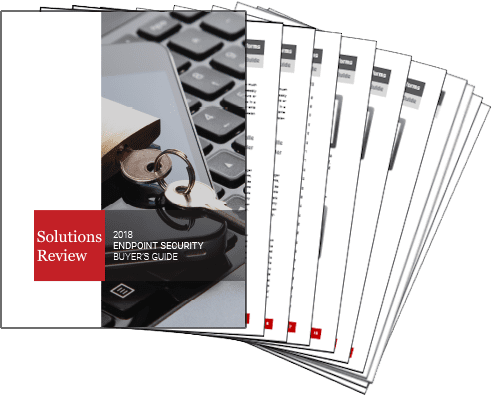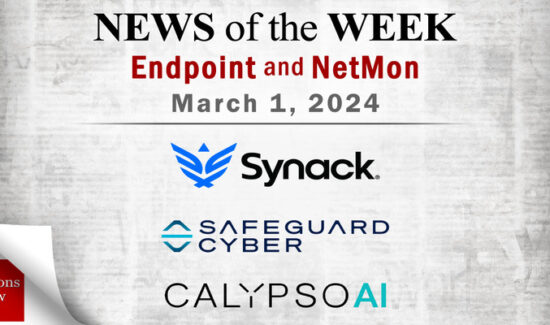Can Endpoint Security be a Business Enabler for Your Enterprise?


It’s a tricky question on the surface. Certainly, the importance of preventative endpoint security has become more widely recognized in recent years; headlines of enterprise data breaches dominate the news cycle. Having a robust cybersecurity platform may not be 100% effective at keeping threats out, but it can deflect a significant number of attacks and deter inexperienced hackers.
Yet at the same time, endpoint security has traditionally been seen as separate from everyday business processes. Thus it can be seen by those in the actual trenches of daily activity as an imposition—not an attitude that facilitates a strong IT perimeter. Your employees, mid-level managers, and C-level executives could see cybersecurity as an inhibitor to growth and profits. To them, true endpoint security slower workflow speeds and limited use of crucial apps and services.
While understandable, these notions are misguided. Endpoint security is, in fact, a business enabler vital to attracting customers and clients and managing relationships. Here is how:
Endpoint Security Means Customer Loyalty
One of the most well-known costs of an enterprise data breach is the loss of customer trust. While it can be difficult to quantify such a long-term effect, there has been a proven connection between misuse of customer data or failure to prevent a breach and future revenue.
But enterprises have begun to discover that it works both ways: having a strong endpoint security platform can prove a business enabler by increasing customer loyalty. Consumers positively respond to enterprises they feel has their best interests and their data security at heart—which translates into better sales and word-of-mouth.
Endpoint security, therefore, could help enterprises improve their market share, regardless of their industry.
EDR Can Loosen Up Legacy Restrictions
Many of the negative perceptions surrounding endpoint security as a business inhibitor stem from history. In the past, legacy endpoint security solutions—with their emphasis on prevention at all costs—forced employees and managers to undergo lengthy security audits before they could begin using a new tool, service, or app. It prevented innovations and technological adoption, fostering resentment on the ground level.
However, next-gen endpoint security is slowly shifting to a detection-based model with the advent of endpoint detection and response (EDR). Unlike heavy prevention methods, EDR is a business enabler by allowing for faster technology incorporation and innovation without sacrificing security. It allows enterprises to experiment with new apps and services while maintaining an adaptive security perimeter.
In short, next-gen endpoint security is a business enabler by providing the best of both worlds.
Endpoint Security Training is a Time Saver
We’ve said time and time again that the biggest digital attack vector of any enterprise is their employees. Phishing attacks are popular for a reason—they’re effective at taking advantage of employees moving too quickly or exploiting your business activities and relationships to seem legitimate.
Taking the time to train your employees to maintain your enterprise’s IT security perimeter may seem like a waste, but it doesn’t just improve your overall security. It can also help your employees recognize phishing attacks before they happen, and thus actually save them potential downtime; a phishing attack would cause them to lose productive time waiting for a solution. Training your employees can help them avoid wasting time even looking at a phishing email, refocusing them onto their prime duties.
While the time employees save may seem comparatively minuscule, a common principle of true business enablers is “a little in abundance is a lot.”
Cybersecurity is a Two Way Street
Demonstrating endpoint security from the top of your enterprise down is important for cultural adoption and valuation.
However, CISOs and IT security team members need to meet your frontline employees halfway if they want their cybersecurity to be accepted as a business enabler. They need to come down to the ground level and see how employees are interacting with their endpoint security protocols and what tools and apps they use on their day-to-day basis. Doing so will enable your security team to understand how to implement your solution in the most optimal way possible.
Enforcing cybersecurity without at least some consideration for business processes will only lead to resentment or, in worst case scenarios, workarounds subverting your security systems. Only by understanding the advantages of the riskier applications and innovations and finding ways to work with them can endpoint security be a business enabler.
Other Resources:
Gartner’s 2018 Magic Quadrant for Endpoint Protection Platforms (EPP): What’s Changed?
4 Tips For Endpoint Security Solutions (That Everyone Forgets)
Endpoint Security Advice for the CISO on the Go!
Endpoint Security vs Legacy Antivirus: What’s the Difference?
Comparing the Top Endpoint Security Vendors — Solutions Review
Answering the Top 4 Enterprise Endpoint Security Questions
Endpoint Detection and Response (EDR): The Way of the Future?
What Can We Expect for the Future of Endpoint Security?


























